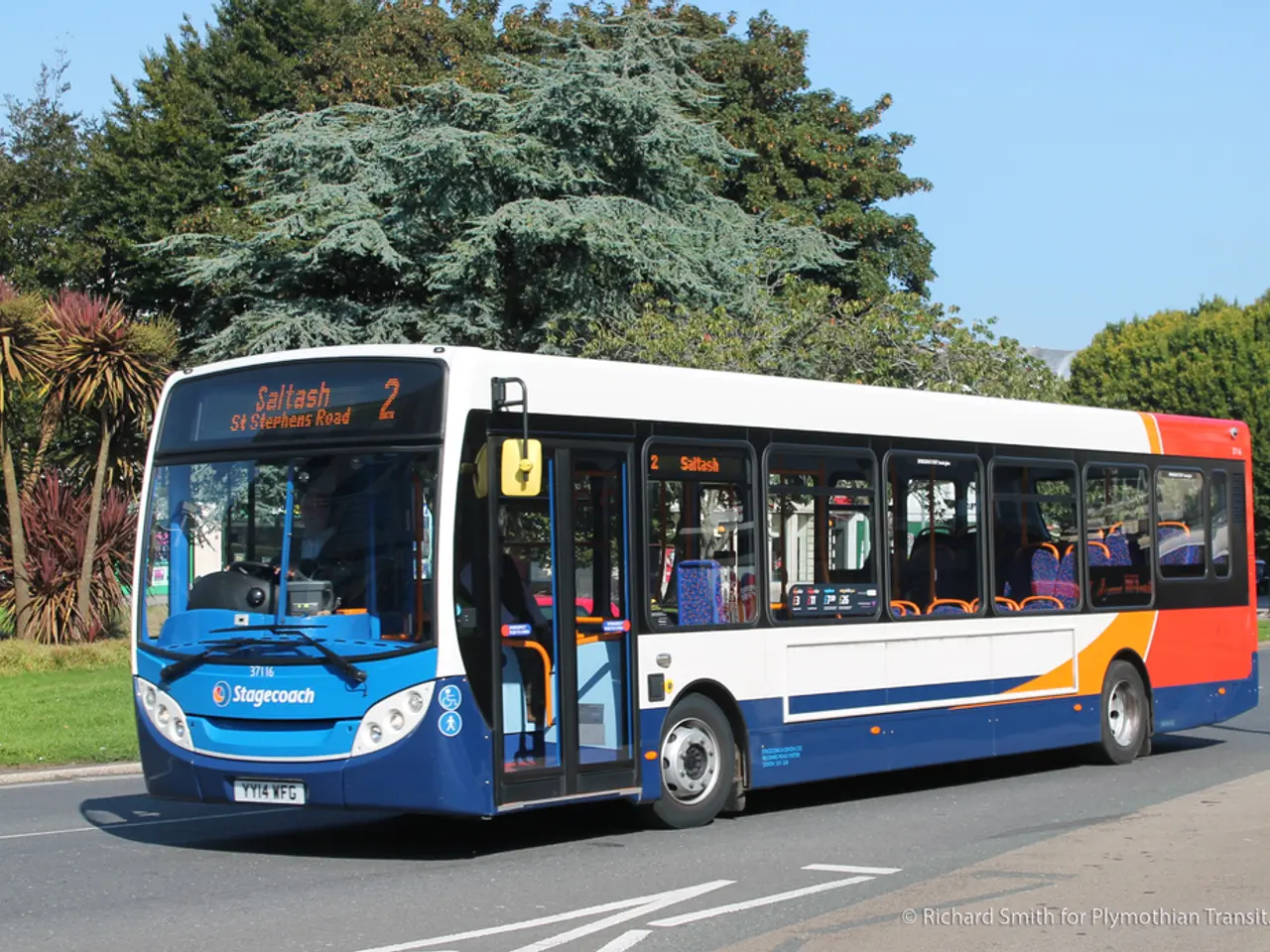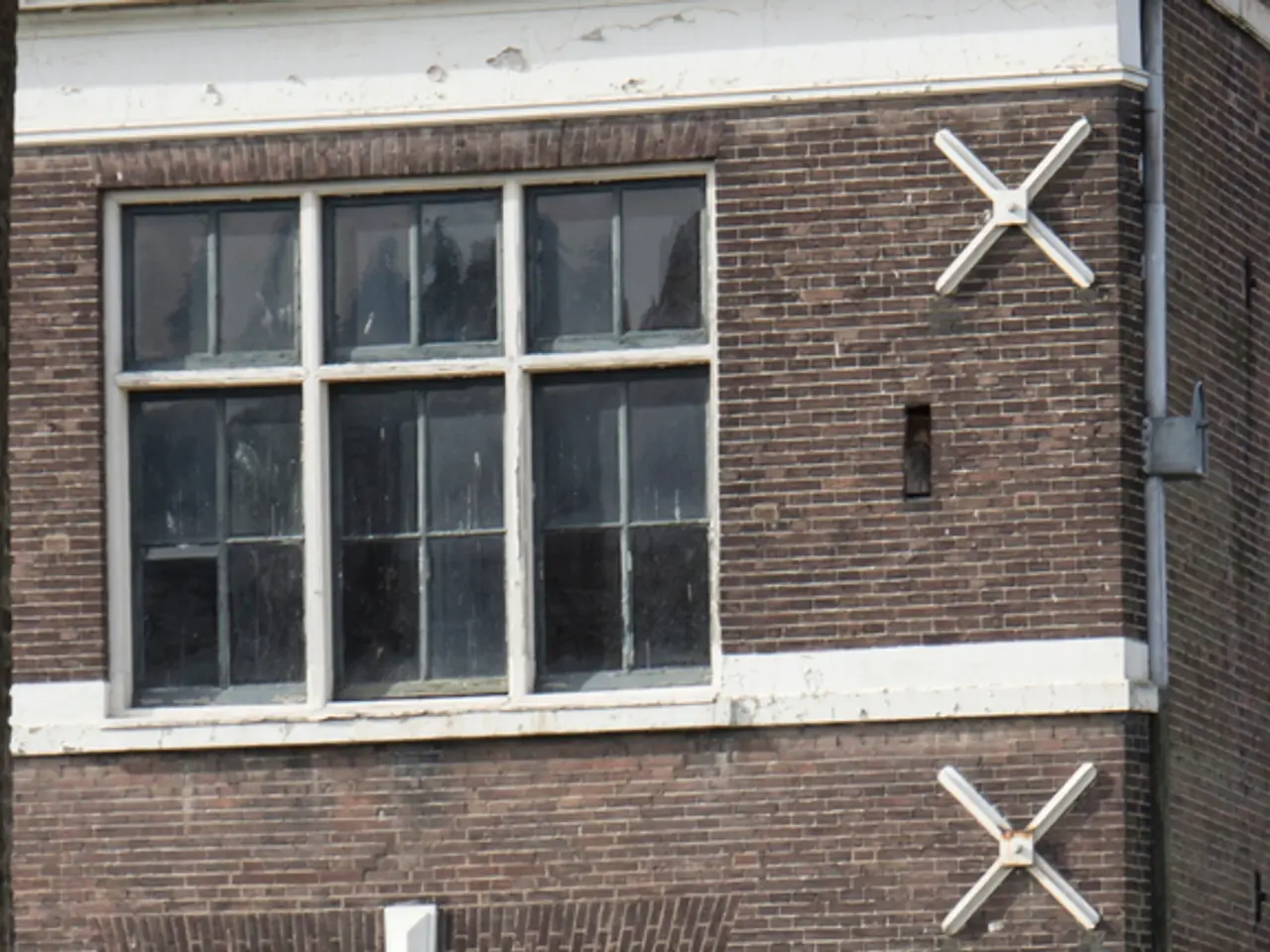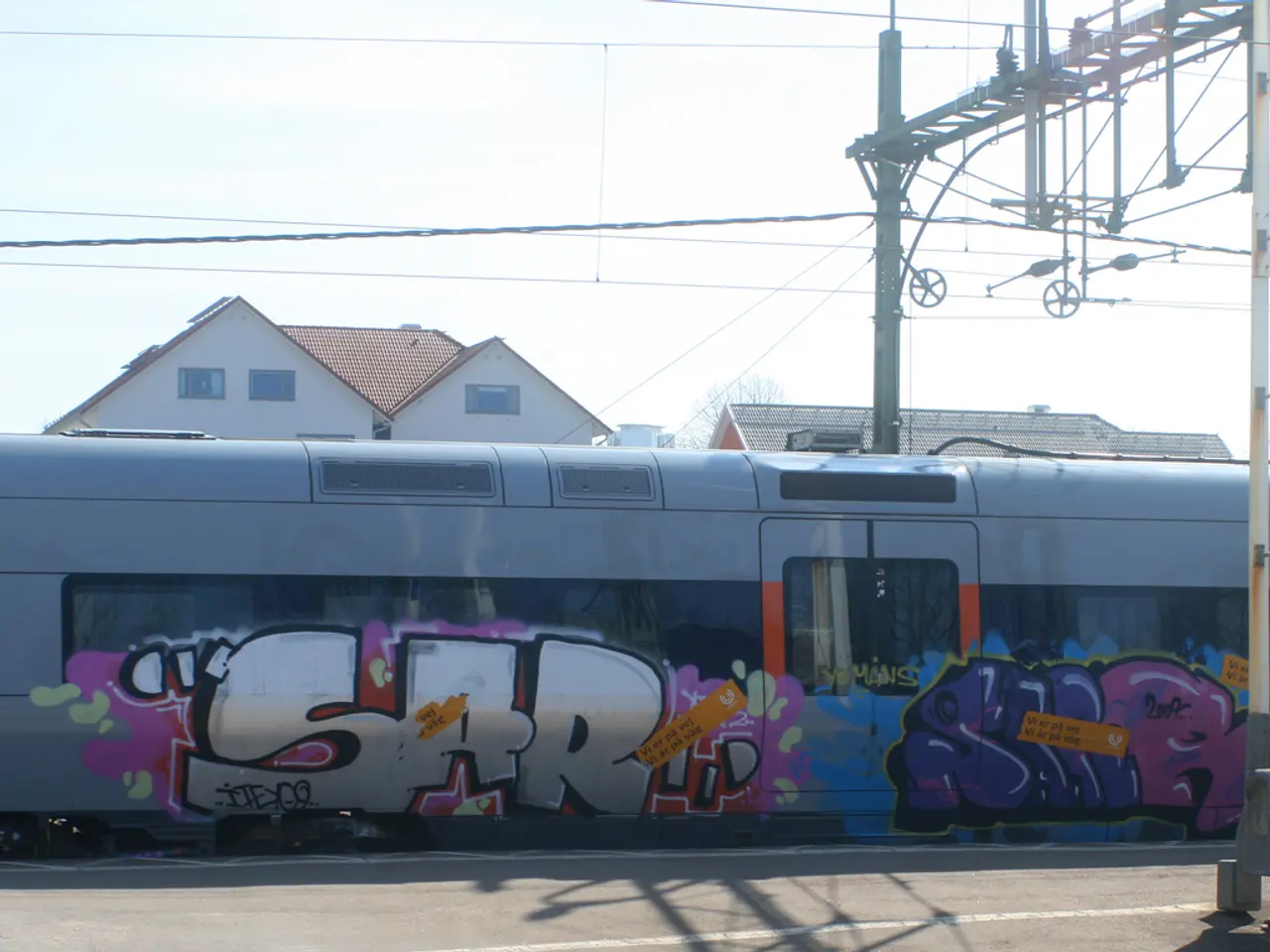American Solar Giant Meyer Burger Seeks Refuge with Chapter 11 – A Turning Point for U.S. Solar Manufacturing?
Struggling for U.S. Survival: Meyer Burger Fights for American Presence
Breaking News: Twitter Telegram LinkedIn E-Mail Print Copy Link
In bold moves, German-Swiss solar company Meyer Burger has filed for Chapter 11 bankruptcy protection stateside. The petition was lodged with the U.S. Bankruptcy Court in Delaware, sparking a comprehensive overhaul strategy for the company.
Key Insights* The bankruptcy filing is to address severe liquidity issues caused by operational delays and cost overruns at its Goodyear, Arizona manufacturing facility, coupled with the cancellation of a Colorado cell plant project.* Meyer Burger is seeking funds to fuel its restructuring efforts, pursuing an expedited Section 363 sale process, with a potential fresh start or asset sale of the Goodyear facility on the horizon.* The Chapter 11 filing follows insolvency cases for the company's affiliates in Switzerland and Germany, signaling a global re-evaluation of its business model amidst competitive pressures.
This unexpected turn of events caps a series of hardships for Meyer Burger, whose workforce reduced to 127 employees as production of solar modules ceased in the U.S., resulting in a WARN Act litigation. But does this signal an end for the solar energy giant, or a new beginning?
Before reaching this critical point, Meyer Burger's ambition to build U.S. solar module production led to sky-high estimated liabilities of $500 million and $1 billion, while assets are estimated between $100 million and $500 million. The cancellation of a contract by a major customer, American D.E. Shaw Renewable Investments, in November, further contributed to their precarious position.
Struggling against Asian competitors with lower production costs, the solar industry landscape will closely watch how Meyer Burger navigates the restoration process, with the U.S. Inflation Reduction Act offering incentives for domestic solar manufacturing.
Amidst shifting market conditions, the industry looks forward to witnessing the outcome of the sale process and the solar giant's transformative journey. Let's hope for the best and brace ourselves for the waves that lay ahead.
Related Topics* Solar Energy* Solar Industry* Solar Manufacturing Industry in the USA* Chapter 11 Bankruptcy* Advanced Solar Technology Manufacturing
Additional Insights* The bankruptcy filing marks a turning point for Meyer Burger, as the company invests millions in efforts to turnaround the fortunes of its U.S. facility.* The future viability of advanced solar technology manufacturing in the U.S., dominated by cost competition, hangs in the balance, pending the outcome of the sale process and broader restructuring efforts.[source: ntv.de, jki/dpa]* The Chapter 11 filing enables the company to reorganize its debts while exploring buyers for its assets, potentially paving the way for a fresh start or sale of the Goodyear facility and related operations.* With funds available for distribution to unsecured creditors, the process appears set for an orderly creditor recovery.* The growth potential of advanced solar technology manufacturing in competitive U.S. market conditions remains uncertain, with the outcome of Meyer Burger's restructuring efforts influencing how other firms invest and strategize in their supply chains.
- The solar industry, grappling with competition from Asian countries known for lower production costs, will monitor Meyer Burger's restructuring under Chapter 11 bankruptcy protection, considering the U.S. Inflation Reduction Act's incentives for domestic solar manufacturing.
- Amidst this critical juncture, discussions about the implementation and effectiveness of community policy and employment policy will be necessary for facilitating industry growth, financing the rehabilitation of solar manufacturers like Meyer Burger, and fostering energy efficiency and renewable energy in the U.S.




